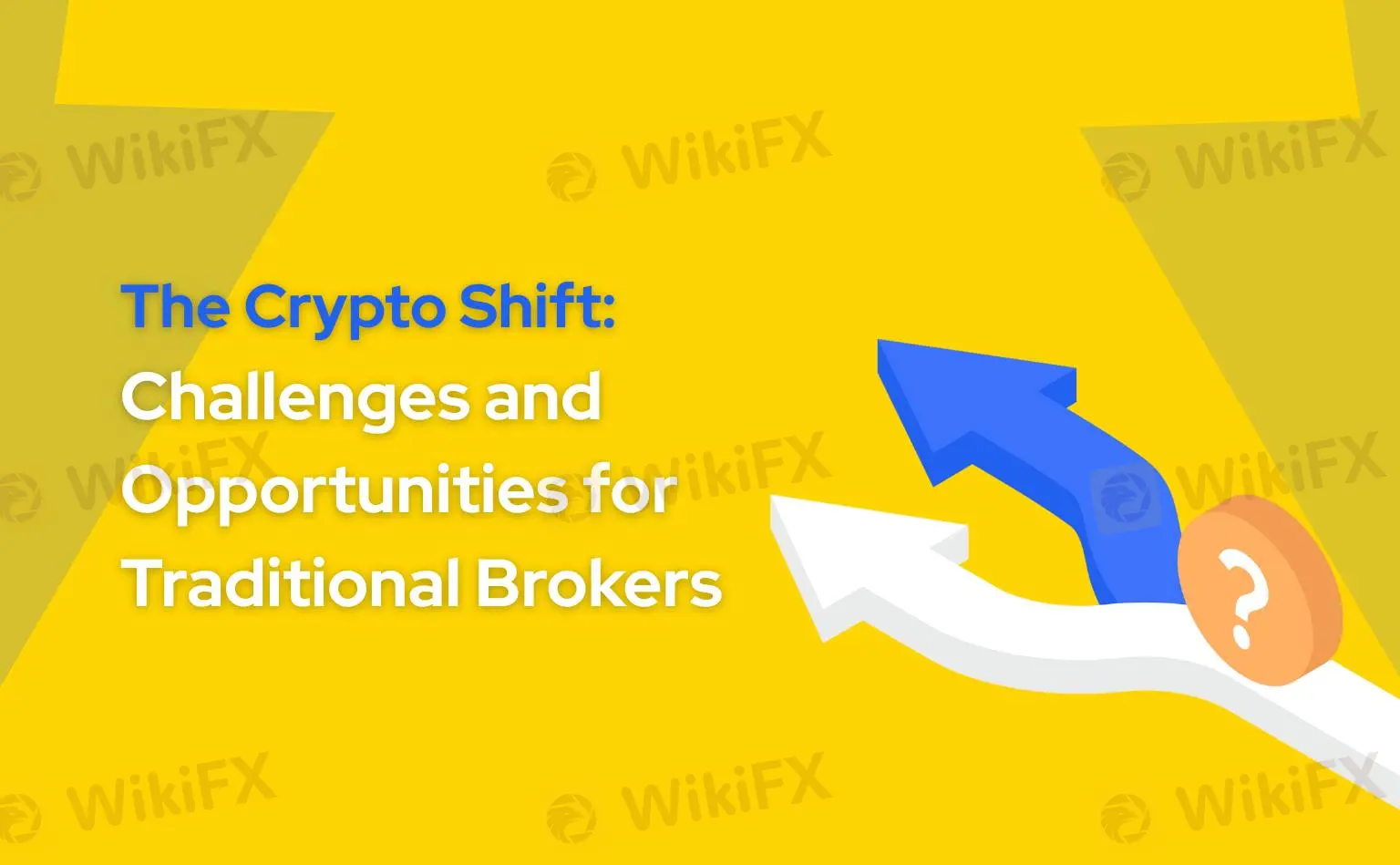The Crypto Shift: Challenges and Opportunities for Traditional Brokers
Abstract:Crypto exchanges are expanding into traditional asset classes like forex and commodities, blurring the lines with traditional brokers. Meanwhile, few brokers, like eToro, have successfully integrated crypto into their platforms, revealing both the opportunities and the challenges ahead.

The boundary between cryptocurrency exchanges and traditional financial brokers is becoming increasingly blurred. As major exchanges expand into offering forex, commodities, and derivatives, and traditional brokers begin incorporating cryptocurrencies into their product suites, a convergence in trading services is underway. This evolving landscape is reshaping competition, forcing both sides to adapt their strategies in a rapidly digitalizing financial market.
Crypto Exchanges: Expanding Beyond Digital Assets
Cryptocurrency exchanges have moved decisively beyond their original focus on Bitcoin and altcoins. Platforms such as Coinbase, Kraken, and OKX have secured MiFID II licenses, enabling them to operate within traditional financial frameworks across Europe. Their ambitions extend far beyond crypto spot trading. By offering futures, options, and central limit order book (CLOB) services, exchanges are positioning themselves as full-spectrum financial hubs. Their unified wallets are designed to support multi-asset trading—spanning crypto, FX, equities, and commodities—offering users a seamless, borderless experience. With a strong foundation in technology, massive user bases, and an aggressive approach to regulatory compliance, these exchanges are setting a fast pace that traditional brokers may find difficult to match.
Brokers Attitudes Toward Crypto
In contrast, traditional FX and CFD brokers have shown a more cautious approach. Many still perceive crypto as volatile or speculative, integrating it only as an auxiliary offering rather than a core service. However, one exception stands out: eToro. Unlike its peers, eToro treated crypto as an essential part of its platform early on. As of 2024, it supports over 100 cryptocurrencies, seamlessly integrated alongside stocks, ETFs, and commodities. This strategic move paid off handsomely—eToro reported $931 million in total commissions in 2024, with crypto accounting for approximately 38% ($354 million) of that figure. Its net profit surged to $192 million, a significant increase compared to the previous year. eToro‘s success demonstrates that embracing crypto is not merely about adding new assets; it requires genuine integration into the platform’s DNA to meet the evolving demands of modern traders.
The Challenges for Brokers Transitioning to Crypto
Despite growing interest, the road to meaningful crypto adoption remains steep for most traditional brokers. A significant barrier lies in outdated technology infrastructures. Many brokers still rely heavily on MetaTrader 4 and 5, platforms built for forex and CFDs but ill-suited for blockchain-based assets. These systems lack native wallet integration, blockchain connectivity, and Web3 compatibility. Adapting to crypto markets is not just about offering Bitcoin trading; it demands reengineering trading platforms, upgrading compliance frameworks, and developing new customer engagement models that resonate with the crypto-native community. Furthermore, entering the crypto space requires a mindset shift—embracing transparency, decentralization, and continuous innovation. For brokers deeply entrenched in traditional finance models, overcoming both technological and cultural hurdles will be the true test of survival in a financial world increasingly shaped by the crypto revolution.
Read more

Kraken Partners with Alpaca to Offer U.S. Stocks and Crypto
Kraken users can now access U.S. stocks, ETFs, and crypto on one platform through a new partnership with Alpaca, expanding into traditional finance markets.

PrimeXBT Expands Trading Options with Stock CFDs on MT5
PrimeXBT launches stock CFDs on MetaTrader 5, offering shares of major U.S. companies with crypto or USD margin for enhanced multi-asset trading.

Bitget Targets 8 Accounts Over $20M VOXEL Market Manipulation
Bitget announces legal action against 8 accounts behind the $20M market manipulation of VOXEL token, after unusual trading activity on April 20, 2025.

Coinbase Launches Bitcoin Yield Fund for Institutional Investors
Coinbase's new Bitcoin Yield Fund targets institutional investors, aiming for 4%-8% returns using a cash-and-carry strategy. Launching May 1, 2025.
WikiFX Broker
Latest News
Love, Investment & Lies: Online Date Turned into a RM103,000 Scam
Broker Took 10% of User's Profits – New Way to Swindle You? Beware!
Pi Network: Scam Allegations Spark Heated Debate
Broker Comparsion: FXTM vs AvaTrade
Account Deleted, Funds Gone: A New Broker Tactic to Beware Of?
Broker’s Promise Turns to Loss – Funds Disappear, No Compensation!
El Salvador and U.S. Launch Cross-Border Crypto Regulatory Sandbox
The Instagram Promise That Stole RM33,000
StoneX Subsidiary, Gain Global Markets Bermuda, Penalized for Trading Misconduct
Kraken Partners with Alpaca to Offer U.S. Stocks and Crypto
Rate Calc
